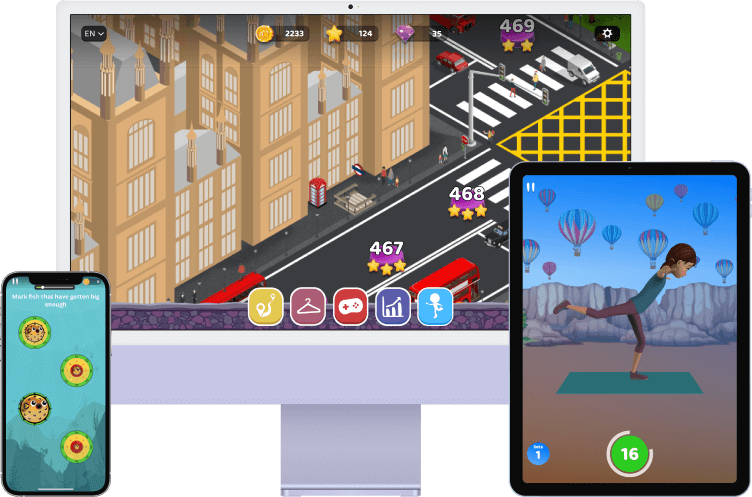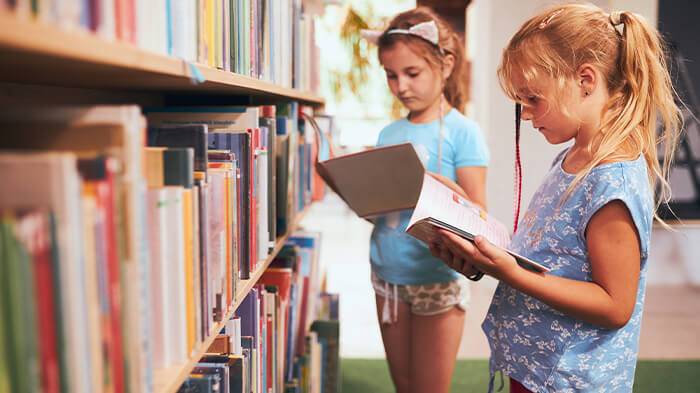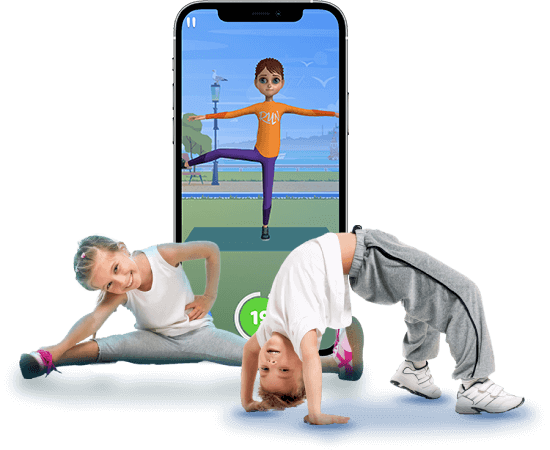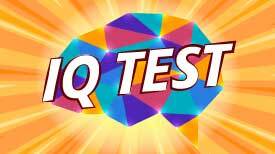36 Co-Curricular Activities (Examples & Benefits)
Co-curricular activities are not part of the formal academic syllabus, but they offer valuable opportunities for students to learn new skills, explore their interests, develop their personalities, and have fun.
Through this blog post, you will discover what are co-curricular activities, see some awesome examples of co-curricular activities from a variety of categories, and learn about their benefits. Now, let’s dive in!
What Are Co-Curricular Activities?
Co-curricular activities enrich and enhance the learning experience of students by providing them with opportunities to apply their knowledge, skills, and values in different situations and settings.

These activities complement the academic curriculum and play a crucial role in the holistic development of students. They can be organized by teachers or students to take place during or after school hours, either on campus or off campus.
Types and Examples of Co-Curricular Activities
Many schools around the world offer various types of co-curricular activities for their students. If you are running out of ideas to organize co-curricular activities in school, keep reading to find a complete co-curricular activities list from a variety of categories.
Educational Co-Curricular Activities
Co-curricular activities aim to enhance the academic performance and skills of students. Educational co-curricular activities in schools can include a variety of group or individual activities, such as attending competitions or doing research projects.
1. MentalUP Educational Games & Activities
With its fun and engaging learning environment, MentalUP is the ultimate app to enhance kids' classroom learning. The award-winning app features hundreds of brain games and activities to improve kids' core skills anytime, anywhere.

Thanks to its adaptive algorithms, MentalUP tests kids' skills continuously and provides them with gamified exercises tailored to their individual needs. Plus, the app offers rich performance-tracking and reporting modules that enable teachers and parents to track their kids’ learning journeys!
MentalUP is here to supplement your kid’s education both inside and outside the classroom with 150+ brain games and 240+ physical activities! 🧠👟
With MentalUP games, which encompass hundreds of categories, such as attention, memory, logic, visual intelligence, and verbal intelligence, children of all ages can enhance their academic abilities. 🎓💯
Plus, the app provides accurate IQ tests and fun competitions to keep kids challenged and engaged. 🚀✨
MentalUP is available on any device! It can be your ultimate resource for providing your kids with exciting and beneficial co-curricular activities. 🤩👍
2. Science Olympiads
Science olympiads are great co-curricular activities examples for fostering kids' scientific curiosity and teamwork. These competitions, which are also one of the best STEM activities for kids, can test students’ knowledge and skills in various fields of science, such as biology, chemistry, physics, and engineering.
3. Math Club
Are you wondering what are co-curricular activities to enhance students’ math skills? Well, math club activities help students practice and improve their math skills in a fun and supportive environment with games, puzzles, and contests.
4. Chess Club
Playing chess enhances kids' planning, analysis, decision-making, and concentration skills. So chess club activities can be great co-curricular activities examples to support kids' cognitive development.
5. History Fair Projects
History Fair projects help students learn about history, culture, and society, as well as develop their research, writing, and presentation skills. Students can choose from different formats, such as exhibits or documentaries, to showcase their historical inquiry and analysis.
6. Coding Workshops
Coding workshops are great examples of co-curricular activities that introduce students to the basics of computer programming. Students can learn how to create websites, apps, or games using different coding languages and platforms, such as HTML, CSS, Python, and Scratch.
7. Literature Clubs
Literature clubs are highly beneficial for improving kids' vocabulary, comprehension, and critical thinking skills. During literature club activities, children can explore different genres, themes, and styles of literature, write essays by using writing prompts for kids, and share their opinions and insights with others.
8. Book Clubs
Book club activities can be helpful for students to improve their reading comprehension, vocabulary, and communication skills.

Members can share their opinions, insights, and questions about the books they read with other members through friendly and respectful discussions.
Physical Development-Focused Co-Curricular Activities
Physical development co-curricular activities are those that promote the health and fitness of students. If you want to know what is co-curricular activities that promote physical skills, here are the best alternatives.
9. MentalUP Fitness Exercises
MentalUP’s fitness module is unlike any other fitness app. It is a fun and engaging learning environment designed to holistically support kids' physical and cognitive development!

Thanks to the app’s easy-to-navigate platform, kids can access fun and animated PE games and co-curricular activities and personalized fitness plans that boost their energy and complement classroom learning by enhancing their memory, attention, and concentration.
MentalUP is the ultimate app for your kid's brain and body! 💪🧠
MentalUP also features hundreds of fitness exercises for kids besides of fun and educational games, tests, and competitions! 🤸
These exercises enhance their balance, strength, and endurance. That’s why it has been awarded as one of the most impactful learning apps available. 🏆
Give MentalUP a try to experience how fast your kids’ physical skills will be improved! 🙌
10. Playing Soccer
Playing soccer helps kids improve their physical fitness, social skills, and self-esteem. It also reinforces kids' coordination and agility. So soccer-based curricular and co-curricular activities can be a great way to accelerate kids' physical and cognitive development.
11. Yoga Club
Yoga is a relaxing and calming activity that promotes wellness, balance, harmony, and flexibility.

So if you are thinking about what co-curricular activities help kids relieve stress, you can take a look at yoga-based activities or consider organizing a yoga club. Also, don’t forget that yoga is one of the best after-school activities for kids.
12. Martial Arts Club
Martial arts are challenging and rewarding activities that require discipline, respect, and courage. Participating in a martial arts club can help students develop their strength, speed, reflexes, and confidence.
13. Playing Baseball
Playing baseball is highly recommended for enhancing kids' hand-eye coordination, problem-solving, and communication skills. So it is a great idea to encourage kids to join baseball teams or play baseball in their free time.
14. Zumba Class
Zumba is a type of aerobic exercise that combines Latin music and dance moves.

By encouraging your kids to join Zumba classes or activities, you can help them burn calories and enhance their fitness and rhythm.
15. Hiking Club
Hiking is one of the best adventurous and educational outdoor activities for kids that exposes students to different landscapes, wildlife, and cultures. If your kids enjoy exploring nature, participating in a hiking club can be a great way to increase their stamina, curiosity, and appreciation for nature.
Social Development Activities
Activities that foster the interpersonal and communication skills of students can be explained as social development co-curricular activities. These activities include engaging in debates and discussions or organizing events and activities.
Here are some of the best examples.
16. Mock Trials
Mock trials are co-curricular activities that simulate real court cases and trials with students acting as lawyers, witnesses, judges, and jurors. They can be exciting and educational activities to teach students about the law and judicial system.
17. Debate Teams
Being part of a debate team helps students improve their research, writing, and communication skills. Additionally, there are numerous benefits of co-curricular activities within debate teams, such as gaining knowledge about current issues, fostering logical thinking, and enhancing persuasion abilities.
18. School Newspapers
School newspapers are a great way to foster a sense of community within a school. Engaging in newspaper activities, such as editing or publishing, can help students learn about journalism and media ethics, and enhance their writing, editing, and design skills.
19. Talent Shows
Talent shows are fun and entertaining activities that teach students about self-expression, confidence, and diversity. Organizing recurring talent shows can help students discover their passions, talents, and strengths.
20. Fundraisers
If you are looking for an idea to help your kids or students learn about social responsibility, compassion, and leadership, try encouraging them to attend or organize fundraisers.

This can be accomplished by raising money for a cause or charity by organizing events, selling products, or making donations.
21. Joining Student Council
Joining the Student Council is a prestigious and influential activity that teaches students about democracy, governance, and advocacy. It can help students develop their organization, negotiation, and leadership skills.
22. Model United Nations
Model United Nations is a co-curricular activity that involves students simulating the roles of diplomats and delegates of different countries in the United Nations. It can be a great activity to broaden kids' horizons and perspectives on global issues.
Recreational Activities
Recreational co-curricular activities provide fun and enjoyment for students while allowing them to unwind, recharge, and engage in their interests and hobbies. Here are the top recreational co-curricular activities for kids of all ages.
23. Camping Trip
Campaign trips can be an adventurous activity for kids of all ages and teach them about nature, survival, and camping skills. These trips also help students enjoy the fresh air, scenery, and wildlife, as well as bond with their peers and teachers.
24. Theme Park Tours
Attending theme park tours can be a great opportunity for kids to learn about physics, engineering, and entertainment. These tours help students experience thrill, joy, and wonder while also providing opportunities to overcome their fears and challenges.
25. Visiting Botanical Gardens
Visiting botanical gardens can be a fun and educational experience that fosters kids' knowledge about botany, ecology, and gardening.

Activities done in botanical gardens help students appreciate the beauty, diversity, and importance of plants as well as learn how to care for them.
26. Comedy Night
Organizing a comedy show can be a hilarious and enjoyable co-curricular activity that teaches kids about humor, creativity, and self-expression. Kids can watch or perform comedy acts such as stand-up improvisation or sketch comedies.
27. Industrial Visits
Trips that include visiting factories or companies that produce goods can be a great way to inspire kids about their career goals. These co-curricular activities also help them learn about specific industries businesses and technologies.
Culture and Value-Based Co-Curricular Activities
Culture and value-based co-curricular activities expose students to different cultures and traditions. This way, they expand their cultural awareness and respect. Let’s dive into some examples of co-curricular activities for this category.
28. Language Clubs
Language clubs help students improve their language skills, cultural awareness, and social interaction. These clubs can be organized by language level, topic, or theme, and can include activities, such as games, quizzes, conversations, or presentations.
29. Cooking and Baking Workshops
Organizing cooking and baking workshops related to different cuisines can foster kids' cultural awareness and help them learn about dishes, nutrition, and hygiene.

These workshops can include activities that involve students preparing and enjoying various dishes and desserts with the guidance of a chef or teacher.
30. Celebrating Holidays
Celebrating holidays is essential to helping kids appreciate the diversity, richness, and significance of different cultures. Holiday activities can be organized by date, culture, or religion, and can include activities such as crafts, games, songs or stories.
31. Dance Nights
Dance nights that are organized by genre or style can help students develop their physical fitness, rhythm, and confidence. The dance night activities can also teach kids about local dances, cultures, and genres.
32. Visiting Art Museums
Visiting art museums allows students to explore and appreciate different works of art from various artists, periods, and movements. These museum trips can be organized by artist, style or topic and can include activities such as observing analyzing discussing or creating.
Arts and Craft-Based Co-Curricular Activities
Arts and craft-based co-curricular activities allow students to express their artistic skills outside the classroom. Let’s discover some extracurricular activities that stimulate creativity.
33. Art Clubs
Students can practice art and hone their artistic skills in art clubs. Art club activities can include experimenting with different mediums such as mixed media, watercolor oil painting, and more. This way, children can learn drawing ideas for kids easily and imlepement them by developing their creative skills.
34. Poster Designing
Poster designing stimulates kids' creativity and graphic design skills by allowing them to design their own posters with images text colors and shapes to convey a message and attract attention.

Students can create posters for various purposes, such as promoting a cause, raising awareness, or advertising an event. This activity can also be used as one of the most entertaining classroom decoration ideas.
35. Flower Decoration
Flower decorating teaches kids about the symbolism of flowers and helps them express their emotions and personality. Kids can arrange different types of flowers in various ways such as bouquets wreaths centerpieces or corsages.
36. Collage Making
Collage making is an activity where kids can make art by assembling different materials such as paper fabric photos or magazines on a surface.

Kids can use different techniques such as cutting tearing gluing or layering to create interesting and original compositions.
Benefits of Co-Curricular Activities
Now that we have explained a wide variety of co-curricular activities from different categories, let’s explore the benefits and importance of co-curricular activities for kids:
- Help kids develop various skills, such as teamwork, creativity, and problem-solving
- Provide children with opportunities to explore their interests and passions
- Enhance academic performance by improving kids’ motivation, memory, and self-esteem
- Foster kids’ social and emotional skills by reducing stress
- Prepare children for their future careers by showing them different fields and perspectives
- Stimulate curiosity and creativity by exposing children to diverse experiences
- Promote kids’ physical and mental well-being by encouraging them to exercise
- Cultivate children’s civic and moral values by teaching them about social responsibility
- Enhance personal and professional growth by providing kids with feedback, recognition, and mentorship
FAQs Related To What Are Co-Curricular Activities
If you still have questions about co-curricular activities meaning, let’s take a look at the most frequently asked questions about these activities.
What are curricular and co-curricular activities?
Curricular activities are part of the formal academic curriculum, while co-curricular activities are additional activities that complement the curriculum.
What is the difference between co-curricular and extracurricular activities?
Co-curricular activities are usually linked to academic goals, while extracurricular activities are usually pursued for personal interest or enjoyment outside the academic context.
What are co-curricular activities in school?
Co-curricular activities in school are activities that students participate in along with their regular studies, such as clubs, debates, and competitions.
How many co-curricular or extra-curricular activities should my child take up?
The answer to this question depends on your kid's interests and availability but it is recommended to provide them with 2-3 activities that can benefit their overall development.
What is co-curricular learning?
Co-curricular learning refers to the educational experiences and skills gained through participation in co-curricular activities.
How co-curricular activities help students?
These activities help students by fostering personal growth, developing skills, promoting social interaction, and providing opportunities for leadership and self-expression.
What is the importance of including co-curricular activities in a resume?
It demonstrates a well-rounded personality including analytical thinking skills, showcases skills beyond academics, and highlights involvement in the school or community.
When is it best to list co-curricular activities on a CV?
It is best to list these activities on a CV when they are relevant to the job or educational program you are applying for and when they demonstrate valuable skills or experiences.
Boost your child’s mental and physical development with MentalUP! 👨👩👧👦
MentalUP offers 150+ games, tests, and 240+ fitness exercises for children of all ages. Whether you want to improve your kid’s skills or keep them active, MentalUP has it all. 🍀
Plus, you can track your child’s progress with 5 detailed analysis tools and see how they compare to their peers! 📊
MentalUP is trusted by millions of parents and teachers around the world. It’s a safe and ad-free app for supporting kids' academic, social, and physical. 🌟
Download MentalUP right away to take your kid's skills to the next level! 🚀✨





